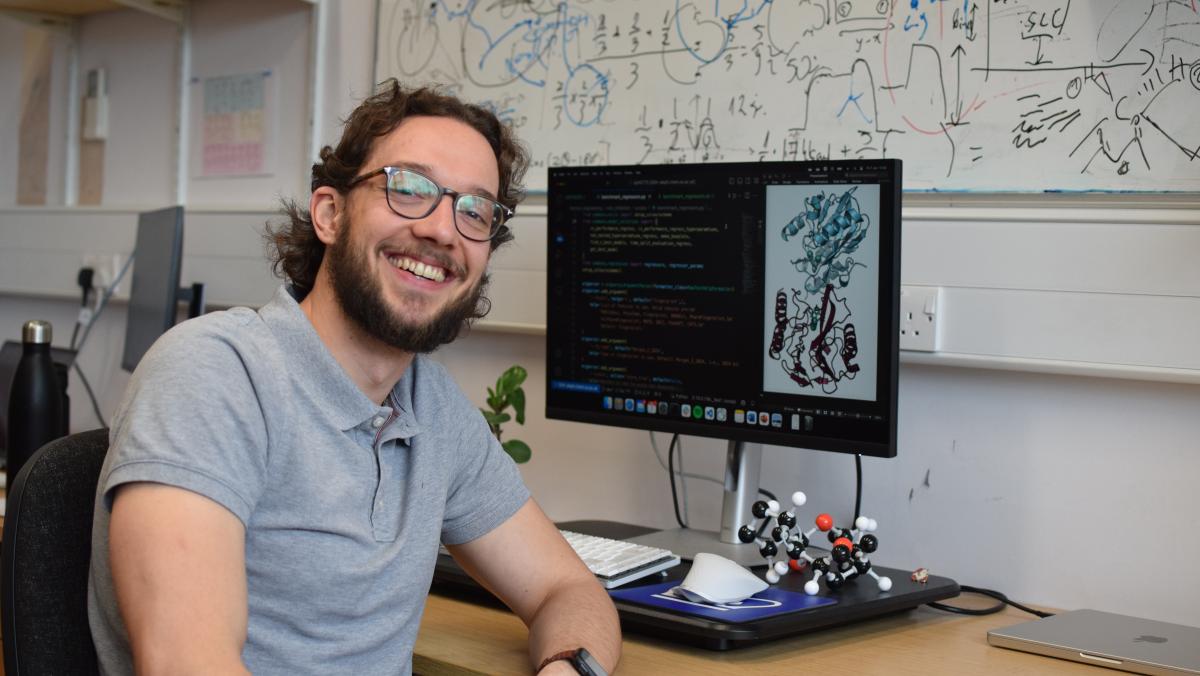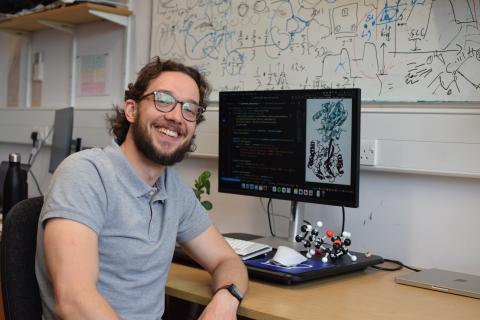
Computational chemistry is a branch of chemistry that uses computer simulations to solve complex chemical challenges. One such challenge is the discovery of new antibiotics to tackle rising rates of antimicrobial resistance (AMR).
Finding new antibiotics is a long and expensive process- the last class of antibiotics to make it to market was discovered in 1987. Wojtek Treyde, a PhD student on the INEOS Oxbridge Doctoral Initiative is a computational chemist, working closely with lab-based researchers at the IOI to use machine learning to inform research. He does this in two ways: traditional machine learning and generative machine learning.
Traditional machine learning uses algorithms to explore existing data. This allows big data libraries to be screened to see if they meet a set of specific requirements – in this case related to what makes a good antibiotic drug. When the model identifies compounds from the library predicted to be active, the lab team tests their effectiveness against bacteria.
“Generative machine learning uses artificial intelligence to predict new antibiotics from scratch. The aim is to find non-traditional antibiotics that are not derived from a natural product, as bacteria find it difficult to develop resistance against such compounds.” says Wojtek Treyde, PhD student at the Ineos Oxford Institute for antimicrobial resistance.
But designing a compound that meets key requirements, namely, to be active against a target bacterial enzyme, is only the start. The compound needs to be active against the bacteria itself, to ultimately kill or disrupt its growth. Crucially, the compound must be non-toxic and synthetically accessible, meaning it can be made in the laboratory.
Wojtek’s PhD project combines his research experience so far – an undergraduate degree in chemistry and master’s degree with a focus in Machine Learning.
I wanted to use my training in an area where I could make a difference. Alongside climate change, AMR is the biggest threat facing humanity and I want to contribute to finding new solutions.

Wojtek works very closely with synthetic chemists who share their expertise to feedback on whether a predicted compound is likely to be non-toxic, synthesisable and cell permeable.
Wojtek said, “I think this really highlights the collaborative nature of the IOI– lots of different teams input into the development of a new drug. I’ve previously found that wet lab and dry lab teams can be quite separate, whereas here we work closely together so that computational work has a direct impact on experimental science and vice versa. This allows us to constantly improve and reflect on the science we are doing to achieve our goal: developing a new antibiotic.”
As well as settling into the lab Wojtek is enjoying his time as part of the wider university network. “We work hard in the lab, but there is a great balance of academic work and fun, especially getting involved in university sports. Oxford has a unique blend of innovative research and historic traditions, and I’m looking forward to spending the next few years here.”
